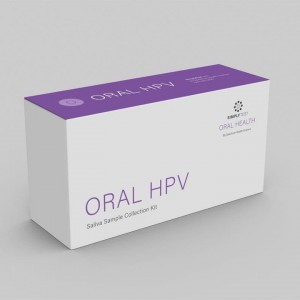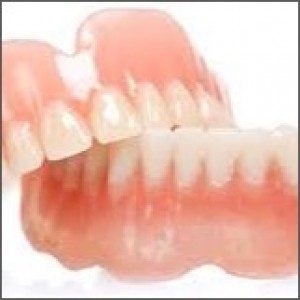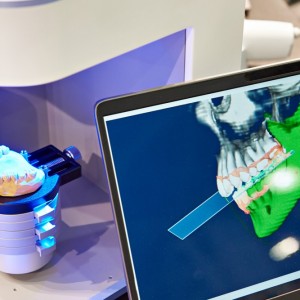
Does the type of access cavity affect the root canal shaping time?
Simona Chirico
Endodontically treated teeth are more prone to fracture than vital teeth, which means the maintenance of greater structural integrity and preservation of cervical dentin are key factors determining the long-term prognosis by increasing the fracture resistance of these teeth.
Recently there is increasing discussion of conservative access cavities (CAC) specially designed with the aim of being minimally invasive and to preserve as much dentine as possible. This cavity design is based on the minimal removal of dentin from the pulp chamber roof, allowing root canals to be located without necessarily reaching them in a straight line, requiring only partial deroofing of the pulp chamber floor.
In CAC, the pulp chamber is accessed from the central fossa and extended only as far as necessary to locate canal orifices.
The creation of a conservative access cavity cannot do without the use of highly flexible magnifiers and endodontic shaping files. However, the excessive spirit of conservation can compromise the cleaning, shaping and canal obturation. It could also increase the preparation time and the probability of iatrogenic complications if not managed by experienced and capable operators.
Materials and methods
In a study conducted by Martin Vorster and his group, the authors compared the shape and final preparation times obtained with the WaveOne Gold (reciprocating) system versus those obtained with the TruNatomy system in combination with two different endodontic access cavity designs in extracted human molar teeth. The study was published in the Journal of Endodontics in April 2022.
The team randomly selected 60 mesiobuccal canals of extracted human mandibular molars and divided them into two different groups based on the access cavity design performed:
- traditional access cavity (CT)
- conservative access cavity (CAC).
Within each cavity design group, the 30 teeth were divided into instrumentation subgroups (WaveOne Gold Primary: n = 15; TruNatomy Prime: n = 15).
- Group 1: Performing Traditional Access Cavity (CT), Stainless Steel Hand K-File No. 10 followed by instrumentation with WaveOne Gold Glider and WaveOne Gold Primery.
- Group 2: Carrying out the conservative access cavity (CAC), stainless steel hand K-file no. 10 followed by instrumentation with WaveOne Gold Glider and WaveOne Gold Primary.
- Group 3: execution of the traditional access cavity (TAC), stainless steel manual K-file n. 10 followed by instrumentation with TruNatomy Orifice Modifier and Glider and TruNatomy Prime.
- Group 4: Carrying out the conservative access cavity (CAC), stainless steel hand K-file no. 10 followed by instrumentation with TruNatomy Glider and TruNatomy Prime.
Researchers recorded glide path and final preparation times.
Results
Root canal shaping with the TruNatomy Glider in combination with TruNatomy Prime was faster than shaping with the WaveOne Gold Glider/WaveOne Gold Primary system regardless of the type of access cavity design.
The TAC design produced faster setup times (38.2+/-4.57 seconds) than the CAC (55.6+/-6.91 seconds) in the WaveOne Gold Glider/WaveOne Gold Primary.
No differences were found between the two different access cavities in combination with the TruNatomy Glider/TruNatomy Prime preparation.
Conclusions
According to the study, preparation time with TruNatomy Glider and Prime instruments was significantly faster than WaveOne Gold Glider/WaveOne Gold Primary, regardless of the access cavity design. TAC design in combination with WaveOne Gold Glider/ WaveOne Gold Primary instrumentation resulted in faster preparation time compared to WaveOne Gold Glider/WaveOne Gold in combination with the CAC design.
For more information: "The Effect of Different Molar Access Cavity Designs on Root Canal Shaping Times Using Rotation and Reciprocation Instruments in Mandibular First Molars."
 Read more
Read more
Much like EMTs rushing to the scene after an accident, stem cells hurry to the site of a skull fracture to start mending the damage. A new finding has uncovered the signaling mechanism that triggers...
Products 05 November 2025
SimplyTest has launched a groundbreaking saliva-based test to detect high-risk strains of oral human papillomavirus (HPV), a major cause of oropharyngeal cancers.
News 05 November 2025
Perimetrics, Inc., a dental technology company pioneering quantitative diagnostics, announced today that the U.S. Food and Drug Administration (FDA) has granted clearance for the InnerView...
News 05 November 2025
On October 15, open enrollment for Medicare began nationwide. Hundreds of thousands of seniors in New Jersey will once again face the challenge of finding the right Medicare coverage, including the...
Digital Dentistry 04 November 2025
Digitalisation is an expanding field in dentistry and implementation of digital teaching methods in dental education is an essential part of modern education.










